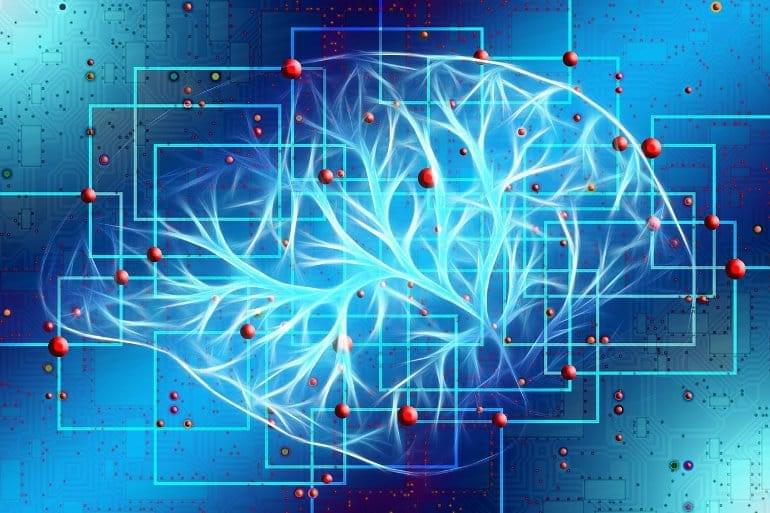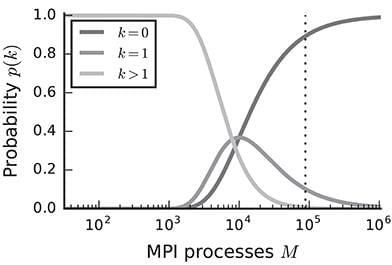For the first time in history, US scientists at the National Ignition Facility at the Lawrence Livermore National Laboratory in California successfully produced a nuclear fusion reaction resulting in a net energy gain. Science educator Bill Nye explains why this is such a big breakthrough. #CNN #News
Get the latest international news and world events from around the world.

4 Mind-Boggling Technology Advances In Store For 2023
Kindly see my latest FORBES article:
In the piece I explore some of the emerging tech that will impact our coming year. Thank you for reading and sharing!
2022 was a transformative year for technological innovation and digital transformation. The trend will continue as the pace of innovation and development of potentially disruptive emerging technologies exponentially increases every year. The question arises, what lies ahead for tech for us to learn and experience in 2023?
While there are many impactful tech topics such as the Internet of Things, 5G, Space, Genomics, Synthetic Biology, Automation, Augmented Reality, and others, there are four tech areas to keep a keen watch on this coming year as they have promising and near-term capabilities to transform lives. They include: 1) artificial intelligence, 2) computing technologies, 3) robotics, and 4) materials science.
Why We May Be Surrounded by Older Alien Civilizations
Are alien civilizations likely to be younger or older than us in age? A basic question that seems insurmountable until we start detecting them. But even before that, we can use some logical deduction using lifetime distribution statistics to determine the most plausible answer to this question. Join us today for an explanation of our new research paper on this topic.
You can now support our research program and the Cool Worlds Lab at Columbia University: https://www.coolworldslab.com/support.
Get Stash here! https://teespring.com/stores/cool-worlds-store.
Thank-you to Kevin Clark, Tom Widdowson, Denny Smith, Stephanie Hackley, Mark Sloan, Laura Sanborn, Kolos Kantor, Patrick Herman, Abel Aganbegyan, Claudio Bottaccini, Daniel Brunk, Douglas Daughaday, Scott Fincher, James Kindred, Andrew Jones, Jason Allen, Steven Baldwin, Jason Black, Stuart Brownlee, Shivam Chaturvedi, David Denholm, Tim Dorais, Glen Downton, Eneko Xabier, Elizondo Urrestarazu, Gordon Fulton, Sean Griffiths, Peter Halloran, John Jurcevic, Niklas Kildal, Jack Kobernick, Wes Kobernick, Valeri Kremer, Marc Lijoi, Sheri Loftin, Branden Loizides, Anatoliy Maslyanchuk, Blair Matson, Ocean Mcintyre, Laini Mitchell, Jeffrey Needle, André Pelletier, Juan Rivillas, Bret Robinson, Zenith Star, Lauren Steely, Ernest Stefan-Matyus, Mark Steven, Elena West, Barrett York, Tristan Zajonc, Preetumsingh Gowd, Shaun Kelsey, Chuck Wolfred, David Vennel, Emre Dessoi, Fahid Naeem, Francisco Rebolledo, Hauke Laging, James Falls, Jon Adams, Michael Gremillion, Pierce Rutherford, Trev Kline, Tristan Leger, Lasse Skov, Takashi Hanai, Drew Roberts, Erynn Wilson, Ian Baskerville, Jacob Bassnett, John Shackleford, Marcus Undin, Martin Kroebel, Ian Johnstone, Geoff Suter, Ian Hopcraft, James Valdes, Phil Akrill-Misso, William Robertson, Elizabeth Orman & Giles Ingham.
Video on planet cloaking: https://youtu.be/z1Pqqf_6J9w.
::References used::

Nanotech Injections Restore Vision In Blind Rats
Year 2020 face_with_colon_three
An international team of scientists have restored the vision in blind rats using a nanoparticle-based artificial retina prosthesis that can be injected directly into the eye. The scientific advance has been successfully demonstrated for a period of eight months without the need for surgery. While it is still early days for the research, it suggests it might one day be possible to use the conjugated polymer nanoparticle (P3HT-NP) treatment in humans to correct eye problems –ranging from hereditary retinal dystrophies to the incredibly common age-related macular degeneration.
“In our ‘liquid retina device,’ P3HT nanoparticles spread out over the entire subretinal space and promoted light-dependent activation of spared inner retinal neurons, recovering subcortical, cortical and behavioral visual responses,” Fabio Benfenati, research director at the Italian Institute of Technology, told Digital Trends. “We think that P3HT-NPs provide a new avenue in retinal prosthetics.”
Retinal prostheses refer to implantable devices that are designed to help restore sight in patients with retinal degeneration. They work by introducing visual information into the retina through the electrical stimulation of surviving retinal neurons. While promising, current retinal prostheses have so far been shown to only return low-resolution vision: Useful for things like distinguishing between light and dark or recognizing simple shapes and objects. This new nanotech approach appears far more promising, offering significantly higher resolution. After just one injection, activity in the rats’ visual cortex and visual acuity were the same as those found in healthy rats.

The Biological Basis of Network Control Theory in Brain Dynamics
Summary: Researchers have identified a correlation between control energy consumption and glucose metabolism in temporal lobe epilepsy. The mechanism provides a biological basis for the application of network control theory in the study of brain dynamics.
Source: USTC
A team led by researcher He Xiaosong from the University of Science and Technology (USTC) revealed the correlation between control energy consumption and glucose metabolism in temporal lobe epilepsy (TLE), providing the biological basis for the application of network control theory (NCT) in the study of brain dynamics.
The Halo Drive
How could we one day travel between the stars with real physics? Perhaps the greatest challenge to interstellar flight is energetics — it takes vast amounts of energy to accelerate even small ships to 20% the speed of light. But what if we could steal that energy from where? Perhaps even a black hole. Enter the “halo drive”, a video by Prof David Kipping based on his new peer-reviewed research paper on the subject.
This video is based on research conducted at the Cool Worlds Lab at Columbia University, New York. You can now support our research program directly here: https://www.coolworldslab.com/support.
Further reading and resources:
► Kipping, David (2018), “The Halo Drive: Fuel Free Relativistic Propulsion of Large Mases via Recycled Boomerang Photons”, JBIS, 71458: https://arxiv.org/abs/1903.03423
► Dyson, Freeman (1963), “Gravitational Machines”, in A.G.W. Cameron, ed., Interstellar Communication, New York Benjamin Press: https://www.ifa.hawaii.edu/~barnes/ast242_s14/Dyson_Machines.pdf.
► Breakthrough Starshot homepage: https://breakthroughinitiatives.org/initiative/3
► Our Cool Worlds video giving some background on Breakthrough Starshot: https://youtu.be/Ksb6Vh0BT_E
► Our Cool Worlds video on relativistic moving mirrors: https://youtu.be/msK9d9k6K0E
► Our Cool Worlds video on mirror distortion effects: https://youtu.be/1iNA-GTocI0
► Columbia University Department of Astronomy: http://www.astro.columbia.edu.
► Cool Worlds Lab website: http://coolworlds.astro.columbia.edu.
There’s an error in the video at around 8:30, 2 trillion joules is the cumulative energy output of a typical nuclear power station after 2000 seconds, not 20 days.
Music is largely by Chris Zabriskie (http://chriszabriskie.com/) and is licensed under a Creative Commons Attribution license (https://creativecommons.org/licenses/by/4.0/), in order of appearance;
► Cylinder Five (http://chriszabriskie.com/cylinders/)
► Music from Neptune Flux, “We Were Never Meant to Live Here” (http://chriszabriskie.com/neptuneflux/)
► Music from Neptune Flux, “That Hopeful Future Is All I’ve Ever Known” (http://chriszabriskie.com/neptuneflux/)
► Cylinder Four (http://chriszabriskie.com/cylinders/)
► The Sun is Scheduled to Come Out Tomorrow (https://soundcloud.com/chriszabriskie/the-sun-is-scheduled-to-come)
In addition, music from OneGuitarOrchestra, acoustic cover of Hans Zimmer’s “No Time For Caution”: https://youtu.be/vau08Z_pN8s.
Video materials used:

Can people with disabilities be astronauts? ESA shows encouraging signs of progress
“ESA is ready to invest in defining the necessary adaptations of space hardware in an effort to enable these otherwise excellently qualified professionals to serve as professional crew members on a safe and useful space mission,” said the agency in a press release in February 2021, when it first issued the call for people with disabilities to apply for what ESA calls the “Parastronaut Feasibility Project.”
McFall’s selection is a huge step forward, but it’s not happening in a vacuum.
On December 14, twelve people with different disabilities will take off on a zero-gravity flight with AstroAccess, aboard Zero Gravity Corporation’s “G-Force One.” They’ll perform experiments to help answer some key questions for astronauts with disabilities — things like how quickly a person with mobility issues can get in and out of a flight seat in microgravity, how a blind person can use textured handholds to orient themselves and navigate the cabin without gravity, and whether sign language is understandable when one person is floating upside down.


Extremely Scalable Spiking Neuronal Network Simulation Code: From Laptops to Exascale Computers
Year 2018 😗
State-of-the-art software tools for neuronal network simulations scale to the largest computing systems available today and enable investigations of large-scale networks of up to 10% of the human cortex at a resolution of individual neurons and synapses. Due to an upper limit on the number of incoming connections of a single neuron, network connectivity becomes extremely sparse at this scale. To manage computational costs, simulation software ultimately targeting the brain scale needs to fully exploit this sparsity. Here we present a two-tier connection infrastructure and a framework for directed communication among compute nodes accounting for the sparsity of brain-scale networks. We demonstrate the feasibility of this approach by implementing the technology in the NEST simulation code and we investigate its performance in different scaling scenarios of typical network simulations. Our results show that the new data structures and communication scheme prepare the simulation kernel for post-petascale high-performance computing facilities without sacrificing performance in smaller systems.
Modern neuroscience has established numerical simulation as a third pillar supporting the investigation of the dynamics and function of neuronal networks, next to experimental and theoretical approaches. Simulation software reflects the diversity of modern neuroscientific research with tools ranging from the molecular scale to investigate processes at individual synapses (Wils and De Schutter, 2009) to whole-brain simulations at the population level that can be directly related to clinical measures (Sanz Leon et al., 2013). Most neuronal network simulation software, however, is based on the hypothesis that the main processes of brain function can be captured at the level of individual nerve cells and their interactions through electrical pulses. Since these pulses show little variation in shape, it is generally believed that they convey information only through their timing or rate of occurrence.
Living robots made in a lab have found a new way to self-replicate, researchers say
Year 2021 face_with_colon_three
Xenobots, a type of programmable organism made from frog cells, can replicate by spontaneously sweeping up loose stem cells, researchers say. This could have implications for regenerative medicine.